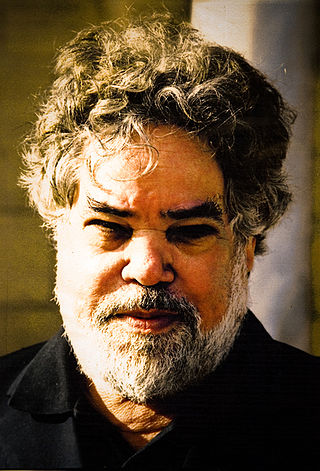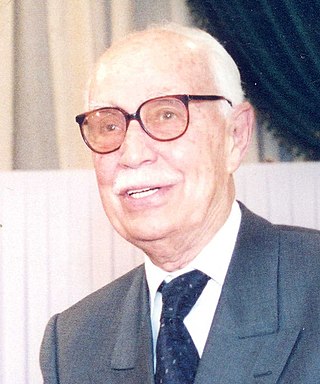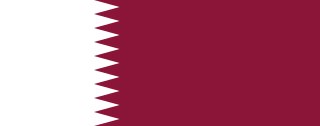Related Research Articles

Casablanca, also known in Arabic as Dar al-Bayda is the largest city in Morocco and the country's economic and business center. Located on the Atlantic coast of the Chaouia plain in the central-western part of Morocco, the city has a population of about 3.71 million in the urban area, and over 4.27 million in the Greater Casablanca, making it the most populous city in the Maghreb region, and the eighth-largest in the Arab world.
Arabic literature is the writing, both as prose and poetry, produced by writers in the Arabic language. The Arabic word used for literature is Adab, which is derived from a meaning of etiquette, and which implies politeness, culture and enrichment.

Mohammedia, known until 1960 as Fedala, is a port city on the west coast of Morocco between Casablanca and Rabat in the region of Casablanca-Settat. It hosts the most important oil refinery of Morocco, the Samir refinery, which makes it the center of the Moroccan petroleum industry. It has a population of 208,612 according to the 2014 Moroccan census.

Raja Club Athletic, commonly referred to as Raja CA, Raja Casablanca, RCA or simply RAJA is a professional football club based in Casablanca, Morocco, that competes in Botola, the top flight of Moroccan football.
Zakaria Tamer, also spelled Zakariya Tamir, is a Syrian short story writer.
Mohamed Choukri (15 July 1935 – 15 November 2003, was a Moroccan author and novelist who is best known for his internationally acclaimed autobiography For Bread Alone, which was described by the American playwright Tennessee Williams as "A true document of human desperation, shattering in its impact".
Sudanese literature consists of both oral as well as written works of fiction and nonfiction that were created during the cultural history of today's Republic of the Sudan. This includes the territory of what was once Anglo-Egyptian Sudan, the independent country's history since 1956 as well as its changing geographical scope in the 21st century.
Moroccan literature is the literature produced by people who lived in or were culturally connected to Morocco and the historical states that have existed partially or entirely within the geographical area that is now Morocco. Apart from the various forms of oral literature, the written literature of Morocco encompasses various genres, including poetry, prose, theater, and nonfiction like religious literature. Moroccan literature was and is mainly written in Arabic, however it was also written at a lesser extent in Berber languages, Hebrew, French, and Spanish. Through translations into English and other languages, Moroccan literature originally written in Arabic or one of the other native languages has become accessible to readers worldwide.
Mohamed Zafzaf was a prominent Arabic-language novelist and poet in 20th century Morocco. He played a pivotal role in the development of Moroccan literature in the second half of the 20th century and, due to his contributions, came to be known by such titles as "the godfather of Moroccan literature", "the Moroccan Tolstoy", "the Moroccan Dostoyevsky" and as "our great author" among his Moroccan peers.

Tayeb Saddiki was a Moroccan theatre director and one of the most iconic and prominent Arab artists, and is considered among the foremost Arab dramatists of the twentieth century. Trained in classical Western theater, Saddiki also embraced traditional Moroccan theatrical styles, fusing the two into a path-breaking combination of Western and traditional Moroccan theater. Known for staging spectacles played to large crowds in big arenas, Saddiki developed a style of festive theater that became a popular in the Arab world.

Egyptian literature traces its beginnings to ancient Egypt and is some of the earliest known literature. Ancient Egyptians were the first to develop written literature, as inscriptions or in collections of papyrus, precursors to the modern book.

Khnata Bennouna is a Moroccan author of novels and short stories.

Abdelkrim Ghallab was a Moroccan political journalist, cultural commentator, and novelist. He is an important figure both in the literary and political field.
Ali Siqli is a Moroccan writer of children's books and drama. In 1982 he received the Great Prize of Morocco and the international King Faysal award.
Abdennour Mezzine is a Moroccan doctor and writer. He was born in the town of Ben Ahmed in northern Morocco. He has been practicing medicine since the 1990s. He started his literary career by publishing French-language poetry in the Al-Ra'i newspaper in Rabat, followed by Arabic short stories that appeared in the Al Ittihad Al Ichtiraki newspaper in Casablanca. He has published a number of books, among them The Mustard Gas Kiss, Commandments of the Sea and Letters of the Storm which was nominated for the 2016 Arabic Booker Prize.

Qatari literature traces its origins back to the 19th century. Originally, written poetry was the most common form of expression, but poetry later fell out of favor after Qatar began reaping the profits from oil exports in the mid-20th century and many Qataris abandoned their Bedouin traditions in favor of more urban lifestyles.
Ibrahim Mubarak an Emirati writer and storyteller.

Mustafa Murrar was an Israeli Palestinian storyteller and children's author. He published hundreds of stories, essays and children's stories, including 18 short story collections, numerous novels and children's books for a total of 86 books. He also edited 22 books. His stories have been translated into Arabic, English, French, Spanish and German.
Abd Al Latif Mahfouz Moroccan critic and intellectual, and professor of higher education at Letters and Human Sciences faculty, Benmic – Hassan II University in Casablanca. He is also the coordinator of the semiotics laboratory and analysis of literary and artistic discourses of the same faculty.
Malika Moustadraf was a Moroccan Arabic-language writer. She is best known for her pioneering short stories and women's rights activism, which set her squarely in Morocco's feminist vanguard. Before her early death at age 37, she published a novel, Jirah al-run wa-l-jasad, and the story collection Trente-Six.
References
- Machut-Mendecka E., "Morocco: Real and Unreal in the Output of Mubarak Rabi", in: Africana Bulletin, 2007, vol. 55, pp. 51–67